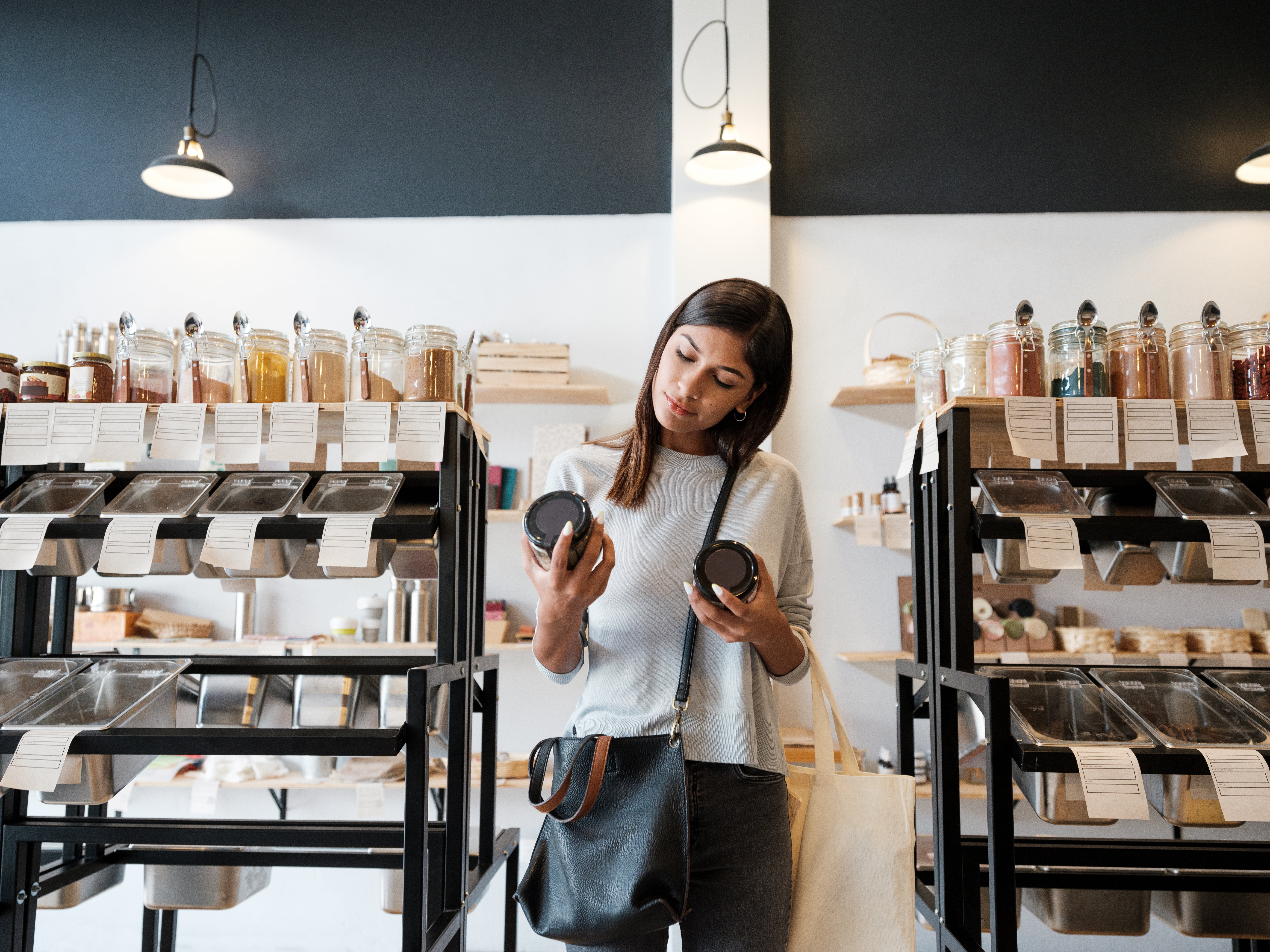The Independent's journalism is supported by our readers. When you purchase through links on our site, we may earn commission.
20 pledges for 2020: How students can afford a sustainable lifestyle
Truly ethical and sustainable beauty brands aren’t easy to find. Can Jessica Jones go a whole year without using anything else?

The university town of Durham has seen somewhat of a green revolution over recent years. Local businesses driven by high environmental and ethical standards are cropping up everywhere and are generally well supported by the local and student communities.
This term more than ever, students have taken on the initiative to inspire one another to shop local and provide the community with the business it needs to survive the second lockdown.
On social platforms, students have been encouraged to buy fresh fruit and veg from the market in the city centre, takeaways and coffees from independent cafes and restaurants, and clothes from charity shops on the high street.
My pledge for 2020 to only use sustainable personal care, beauty and bathroom essentials, has led me on a mission to find local shops which can offer these at a reasonable price.
This year an entirely student-run business called Scoop Durham was established in the city centre. Scoop is a collective of not-for-profit zero-waste shops selling plastic-free essential dried foods, which are price-matched with major supermarkets. Scoop’s aim is to show that leading a sustainable lifestyle doesn’t have to be difficult or expensive.
Recently Scoop Durham have started selling toilet paper by Who Gives a Crap; a company who have eliminated all plastic packaging and whose toilet rolls are made with 100% recycled paper. 50% of their profits help build toilets and improve sanitation in developing countries. Who Gives a Crap is unashamedly for those who do in fact give a crap.
Wrapped in brightly patterned paper, I have never seen such attractive toilet paper in my life. That’s not what made me buy it; one of the biggest selling points of Scoop is that all profits go to local charities who perform vital work in the county.
I spoke to co-founder of Scoop Durham, Davide Bertone, to get his perspective on why they decided to branch out from non-plastic food to bathroom essentials:
“At Scoop Durham, we believe in restoring power to the consumer. So often we end up going for the plastic-filled or the carbon-heavy option because it is the cheapest and most accessible. We want to show that there need not be a trade-off between living sustainably and living on a budget. Household and personal care waste is so abundant yet affordable alternatives are becoming increasingly available.’
At Scoop Durham, we aim to both support businesses that provide affordable sustainable alternatives and help our customers feel empowered to make the sustainable choices they want to make.”
Scoop started in Cambridge but it is rapidly spreading to other universities across the UK. There are now also stores being planned for UCL and Leeds, hopefully with plenty more to follow.
The Weigh to Shop is another zero-waste shop in Durham which sells everything from foods, herbs and spices to cleaning and personal care products. I asked them about what motivated them to start their business and why sustainable living is important to them. James, a representative, told me:
“It all started a couple of years ago when we watched the BBC’s War on Plastic with Hugh and Anita. It completely changed the way we shopped and thought about our consumption of plastic. That led to us trying to shop more sustainably and realising how difficult that was in Durham.’
We had thought about setting something up and the opportunity to actually do it came up at the start of the year. It took a while but we managed to open at the end of August.’
It’s absolutely paramount that everyone is conscious of how much plastic waste they are responsible for and it’s the waste that’s the key.”
Zero-waste shops in my area were extremely easy to find - a simple Google search brought back many more results than I had time to talk about here.
I started my pledge buying a lot of “sustainable” products from Amazon because most high street stores, aside from Holland and Barrett, only stocked a very limited choice of similar items, if any. However, I soon had to face the fact that Amazon is hardly the sustainable option.
In the 21st century it has become normal to expect next day delivery, because any later is outrageous, and at an unbeatable price, because does it really matter that cheap labour is paying for the rest of it?
This year my pledge has completely changed the way I shop. Buying locally is now key to how I live a more sustainable lifestyle. Environmentally conscious shopping doesn’t have to be expensive and it can help local businesses and brands to thrive.
Join our commenting forum
Join thought-provoking conversations, follow other Independent readers and see their replies
Comments


Bookmark popover
Removed from bookmarks